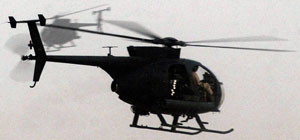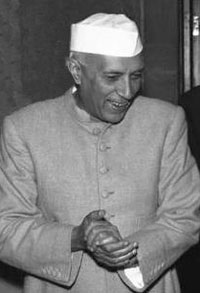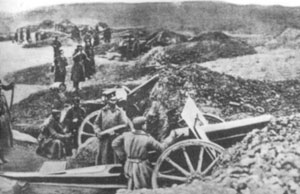This week in history: October 8-14
8 October 2012
This Week in History provides brief synopses of important historical events whose anniversaries fall this week.
25 Years Ago | 50 Years Ago | 75 Years Ago | 100 Years Ago
25 years ago: 25 years ago: US sinks Iranian speedboats in the Persian Gulf
 US AH-6 "Little Bird" attack helicopters
US AH-6 "Little Bird" attack helicoptersOn October 8, 1987, helicopter gunships from the US fleet in the Persian Gulf sank three small Iranian military boats, killing at least four sailors. Another six seamen were pulled from the international waters about 15 miles off the coast of Farsi Island. A fourth Iranian craft reportedly escaped the assault. The Pentagon claimed that the attack was in self-defense, but offered no evidence that any shots were fired by any of the vessels. There were no US casualties or damage of any kind to any of the three AH-6 “Little Bird” attack helicopters.
This assault took place less that three weeks after the murderous attack on the Iranian landing ship Iran Ajr, which resulted in the killing of 5 crewmen, the capture of the remaining 26 and the subsequent sinking of the ship. The buildup of ships in the Persian Gulf by the US Navy and its NATO allies, Britain, Italy and West Germany, gave the lie to the claims of neutrality in the Iran-Iraq war. The threat of direct war against Iran loomed ever closer with each provocation by the US.
The attack was the fourth incident of US forces firing on Iranian ships in the Gulf since July, when the reflagging of Kuwaiti oil tankers began. President Reagan defied members of Congress, including Democratic Senator Paul Simon, who filed a lawsuit demanding that the administration adhere to the 1973 War Powers Act, which required that the president submit a resolution to a vote in Congress before conducting any military operations “where imminent involvement in hostilities is clearly indicated.”
50 years ago: China, India battle in Himalayas
 Nehru
NehruThe first serious battle of the Sino-Indian war took place on October 11, 1962, when soldiers from the two Asian giants clashed in the Himalayan region between Tibet and Assam along their disputed 2,500-mile border. Both sides claimed victory in the battle, in which 33 Chinese soldiers and 17 Indian soldiers were killed or injured.
Fighting stopped after the battle, but both China and India rushed reinforcements to the border region in preparation for war. Indian Prime Minister Jawaharlal Nehru announced on October 12 that he had ordered India’s military to expel Chinese forces from the disputed area. Nehru also ruled out any diplomatic negotiations until all Chinese forces were withdrawn. India had put in place a “Forward Policy” that located Indian military posts north of the British colonial-era McMahon Line between India and Tibet, and violating what the Chinese government called “the line of actual control.”
India had been emboldened in its rivalry with China by the Sino-Soviet rift. The Soviet Union had by 1962 begun to provide substantial technical and military assistance to India, having virtually ended assistance to China.
75 years ago: Britain, France appease Mussolini on Spain
 Chamberlain
ChamberlainThis week in 1937 saw the governments of the United Kingdom and France appeal to the Italian fascist government of Benito Mussolini to reduce Italy’s intervention in the Spanish Civil War, where some 70,000 Italian “volunteers” at the service of Spanish military strongman Francisco Franco were rapidly gaining ground on the Republican government.
On October 9, in a joint communiqué, the two “democratic powers” invited Mussolini to join in tripartite discussions on Spain. The next day, Mussolini flatly rejected the invitation, but issued a counterproposal, calling for the reassembling of the “Non-Intervention Committee,” which included—in addition to the UK, France and Italy—Nazi Germany, the Soviet Union and fascist-ruled Portugal. On October 14, British Prime Minister Neville Chamberlain accepted Mussolini’s offer, “[giving] way to Italy on almost every point of procedure,” according to the New York Times.
Fearful of being surrounded by three hostile powers—Germany, Italy, and Spain—the French government favored a Republican victory, and wished for British backing in a move to provide arms to the Republic. Yet France had already shut her own border with Spain, blocking the movement of goods and volunteers to the Spanish government. When French foreign minister Delbos threatened to open the border, Germany warned that it would increase its support of Franco, and Italy indicated that it would retaliate by expanding its intervention. France quickly backtracked from the threat.
While the diplomatic maneuvering continued, Italian troops and Spanish fascist forces were in the process of eliminating the last vestiges of Republican-controlled land on the Bay of Biscay, Spain’s northern coastline, and to the south of Madrid were massing forces for an assault on Spain’s capital and largest city. On October 11, Madrid was subjected to its worst bombing of the war, with American writer Ernest Hemingway counting the boom of at least 600 artillery shells from his hotel in the city center.
100 years ago: First Balkan War begins
 Bulgarian artillery
Bulgarian artillery On October 8, 1912, the Kingdom of Montenegro declared war on the Ottoman Empire and launched attacks on the Ottoman forts at Detchitch, located opposite the major Montenegrin city Podgorica, and Novi Pazar, Ottoman territory separating Serbia and Montenegro. Montenegrin forces seized control of the Detchitch fort within two days. The conflict rapidly broadened, with the Ottomans declaring war on Serbia and Bulgaria on October 17. On October 18, Serbia, Bulgaria and Greece declared war on the Ottoman Empire, and major military confrontations began in the following days.
The First Balkan War, which lasted until May 1913, marked a major escalation of hostilities on the European continent in the lead-up to World War One and resulted in an estimated 100,000 Ottoman casualties alone.
On October 1, the states that composed the Balkan League—Serbia, Bulgaria, Montenegro and Greece—had issued an ultimatum to the Ottoman Empire demanding that Macedonia, which was under Ottoman control, be granted autonomy. The resistance of the Turks to the Balkan League’s aspirations for a redivision of geopolitical power in the Balkan region prompted the move to war.
Serbia and Bulgaria, with the encouragement of Russia, had signed a treaty in March, that provided for the division of Macedonia into a Serbian zone, a Bulgarian zone and a neutral zone to be arbitrated by Russia, in the event of war. The move initiated the loose political alliance, forged through a series of bilateral treaties, that came to be known as the Balkan League.
The Ottoman Empire had been weakened by growing revolt amongst the Albanians, the Italo-Turkish war of 1911-1912, in which Italy annexed Ottoman territory in modern-day Libya, and internal political instability bound up with the Young Turk revolution of 1908. Austro-Hungarian fears over Balkan nationalism, Russia’s increasing aggressiveness, and Germany’s growing influence heightened regional instability.





Follow the WSWS